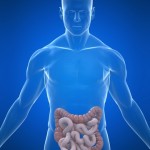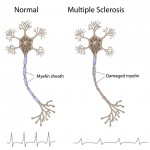 This video was shown in late 2012 at the Congressional hearing about the autism epidemic: “How Mercury Causes Brain Neuron Damage”. Also, “we should be focusing on the dietary aspects” in relation to autism. Parents have to do their own research, and researchers don’t listen to them.
This video was shown in late 2012 at the Congressional hearing about the autism epidemic: “How Mercury Causes Brain Neuron Damage”. Also, “we should be focusing on the dietary aspects” in relation to autism. Parents have to do their own research, and researchers don’t listen to them.
SOURCE: University of Calgary
 The etiology of autism may be similar to that for eczema, asthma and allergic responses. One of the reasons is sulfation, which affects the function of proteins and peptides, among other things. Sulfate is produced by oxidation of methionine or cysteine, which are both sulfur-containing amino acids.
The etiology of autism may be similar to that for eczema, asthma and allergic responses. One of the reasons is sulfation, which affects the function of proteins and peptides, among other things. Sulfate is produced by oxidation of methionine or cysteine, which are both sulfur-containing amino acids.  Shrimp from the Gulf of Mexico is widely contaminated with carcinogens. 53% of sampled shrimp contain polycyclic aromatic hydrocarbons such as xylene, toluene and benzene, which are carcinogenic.
Shrimp from the Gulf of Mexico is widely contaminated with carcinogens. 53% of sampled shrimp contain polycyclic aromatic hydrocarbons such as xylene, toluene and benzene, which are carcinogenic.  A starchy, high-carbohydrate diet is associated with the recurrence of colon cancer.
A starchy, high-carbohydrate diet is associated with the recurrence of colon cancer.  Aspartame-sweetened sodas exposed to higher temperatures turn into poisonous wood alcohol (methanol). Methanol turns into carcinogenic formaldehyde, which can cause multiple sclerosis.
Aspartame-sweetened sodas exposed to higher temperatures turn into poisonous wood alcohol (methanol). Methanol turns into carcinogenic formaldehyde, which can cause multiple sclerosis.  Anyone who’s spent time with a cranky child – or adult – after they’ve eaten too much candy can tell you:
Anyone who’s spent time with a cranky child – or adult – after they’ve eaten too much candy can tell you:  This is one of my favorite recovery stories, as it shows how powerful food can be in recovering from an extremely debilitating chronic illness like multiple sclerosis.
This is one of my favorite recovery stories, as it shows how powerful food can be in recovering from an extremely debilitating chronic illness like multiple sclerosis.

